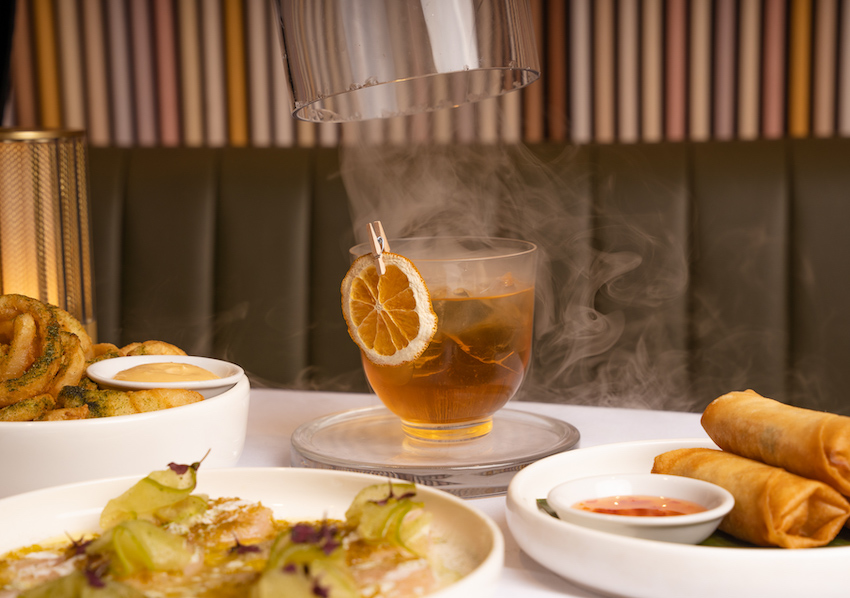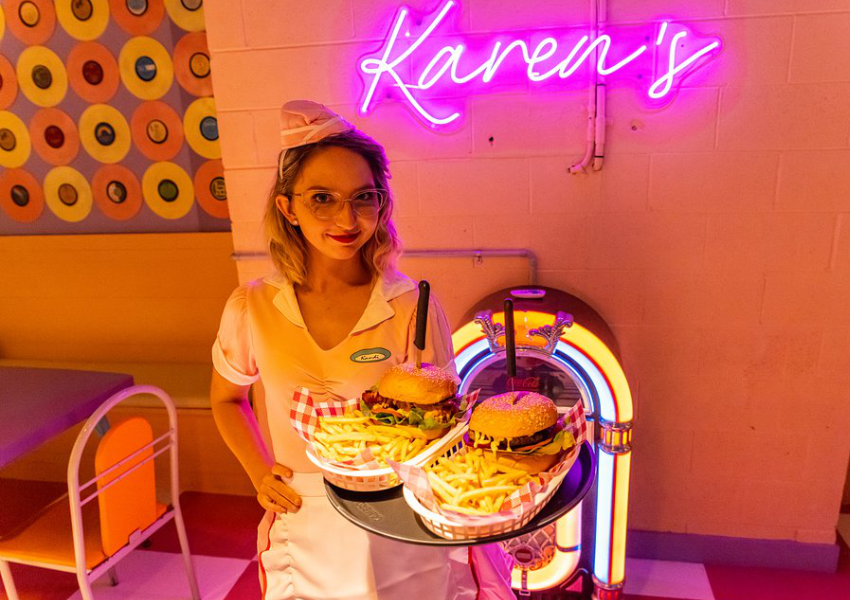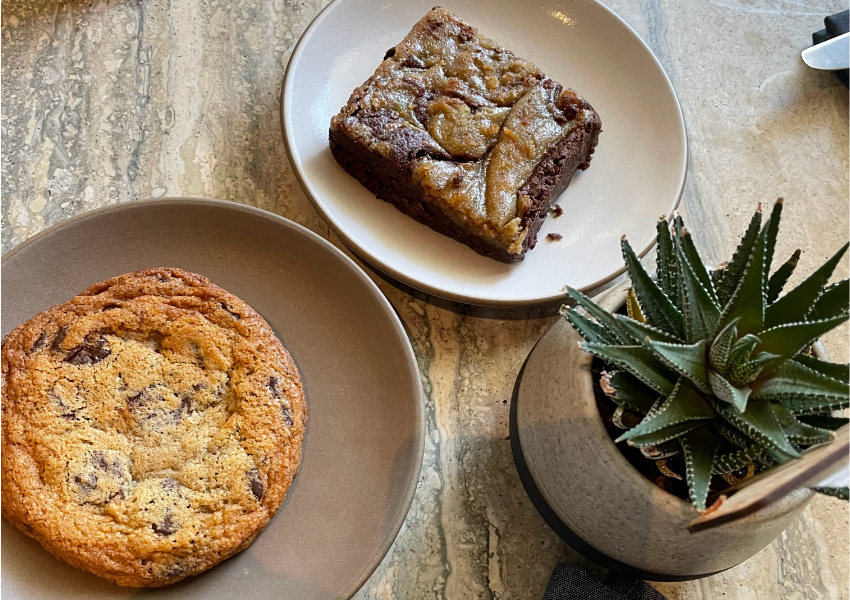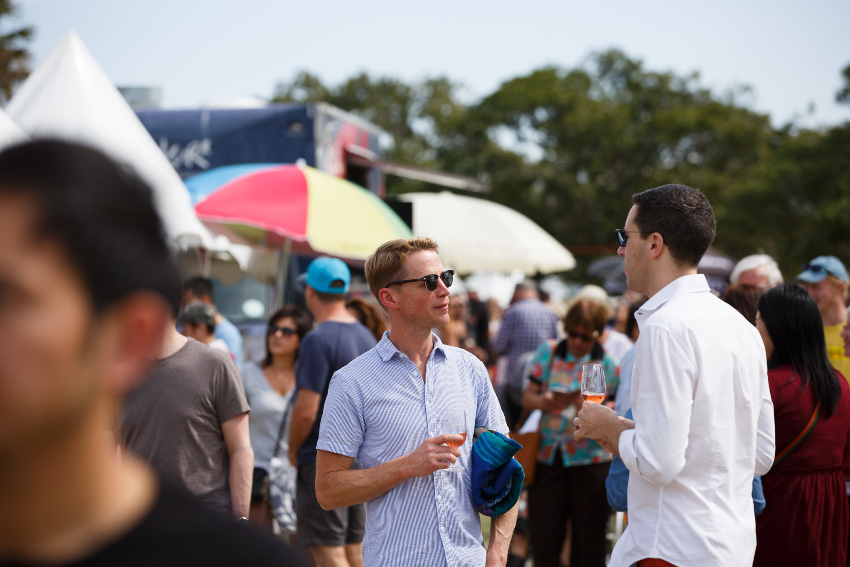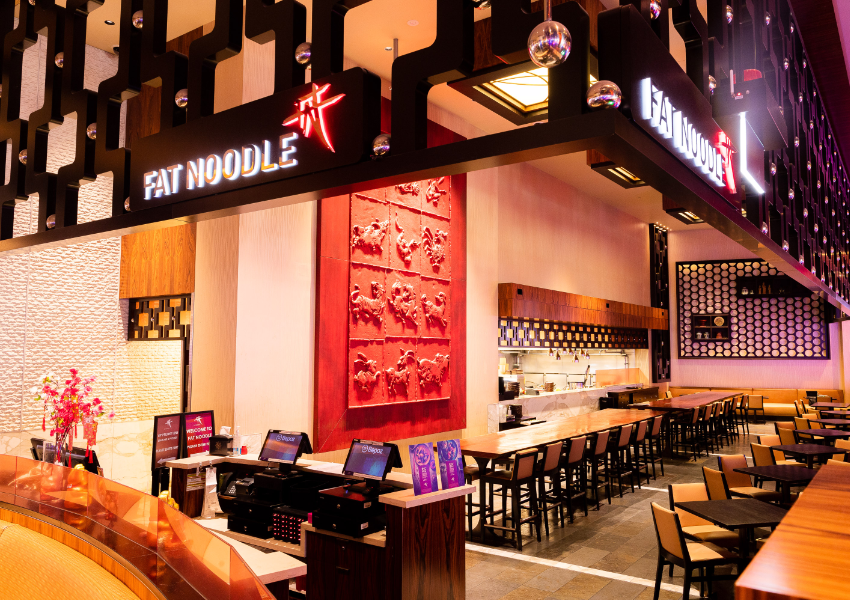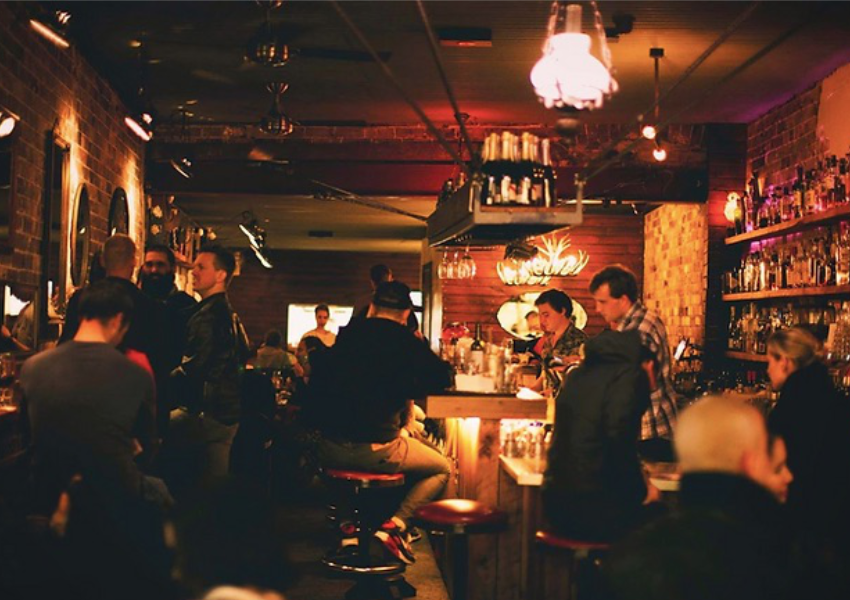
Sustainable Seafood
The choices we make from the menus of Australia’s wonderful seafood restaurants and at the fishmonger are becoming critical. The oceans around us are not limitless in their bounty. Overfishing is a fact in three quarters of the world’s oceans. One man who is concerned about this is Australian-based chef Tom Kime, a regular guest on Ready, Steady, Cook. Tom has recently co-authored a book called Fish Tales (RRP $45.00) that shares photos, stories and recipes from the world’s sustainable fisheries, hoping to get more people interested in ocean-friendly fish.

I asked Tom what the easiest way was to purchase seafood ethically, and he said “look for the blue eco label of the Marine Stewardship Council. The MSC certification ensures that fish is wild from sustainable sources.” This global labeling system currently smiles upon West Australian Rock Lobster and Yellow- eyed Coorong Mullet; but “there are many new fisheries coming on board” all the time, so keep an eye on their fast changing website: www.msc.org. If you buy your seafood at the supermarket, Tom adds that much of the “pre-processed fish used by Bird’s Eye and John West are coming from sustainable fisheries.” You can also check out the work of The Australian Marine Conservation Society www.marineconservation.org.au and download their pocket guide to keep handy at restaurants/fish shops where you can’t look for labels.
If you’re faced with a choice between wild caught and farmed fish, Tom has this advice: “A wild product is always going to be better for the environment, than a farmed one because the impact and footprint will be far less.” You also need to take into account that to “farm one kilo of farmed salmon it takes twelve kilos of wild fish that has been processed into fish feed.” Plus there’s the added risk that escaped fish or feed “full of hormones and antibiotics can leach into the natural environment, causing all kinds of problems with their wild cousins.”
It’s important to remember that our buying habits can and do shape the commercial reality of the fishing industry. “It is our responsibility as consumers to do what we can and insist that the retailers do the same… demand that our wild fish comes from a sustainable source.” Tom points out that Holland is aiming to have all their fish MSC certified as sustainable by the year 2012, and there is “no reason why we cannot do the same.” By choosing sustainable, wild caught fish you can make a difference. By voting with your dollar, you will help ensure that we’ll all be enjoying a summer of seafood for many years to come. So enough with the Orange Roughy, okay?

COOK IT
Learn how to cook sustainable fish by heading to the Sydney Seafood School’s tiered auditorium at the Sydney Fish Markets. Manager Roberta Muir assures me that “all seafood for Sydney Seafood School classes is sourced according to Sydney Fish Market’s Sustainability Principles” which you can view on their website. Choose a class by dish (think paella, chilli crab, laksa or a seafood barbecue) or learn from a chef you admire. I’d recommend the talented Alessandro Pavoni from Ormeggio at The Spit on Monday 10th May – his sardines are second to none! There are also classes from Christine Mansfield (6th March) and Matt Moran (29th March) on offer.
Sydney Seafood School (02) 9004 1111 www.sydneyfishmarket.com.au

EAT IT
One place I like to eat seafood is Manta Restaurant, not least of which because I love watching the sun sink beyond the stunning city views with a well-mixed cocktail in my hand. You can rest assured that they care about the planet too. Head Chef Daniel Hughes had this to say: “Sustainable fishing is of vital importance and deserves more support from our industry. We support these responsible practices at Manta by using a number of sustainable species such as Yellowfin tuna, King George Whiting and Snapper.” None of these fish are on the ‘say no’ list put out by the Australian Marine Conservation Society.
Manta Restaurant, 6 Cowper Wharf Road, Woolloomooloo (02) 9332 3822 www.mantarestaurant.com.au

EVENT
While we’re talking about sumptuous seafood, there’s also a Seafood & Sauvignon Weekend at Bluemetal Vineyard, Berrima on Saturday 20th – Sunday 21st February 2010. It’s a relaxed and casual vineyard setting where you can enjoy freshly shucked oysters, sushi and fresh prawns. Match them with wines including a Fumé Blanc and the lovely Lava One Botrytis 2008, made from a hundred percent Sauvignon Blanc and naturally occurring Botrytis. Bookings advised: (02) 4877 1877.




